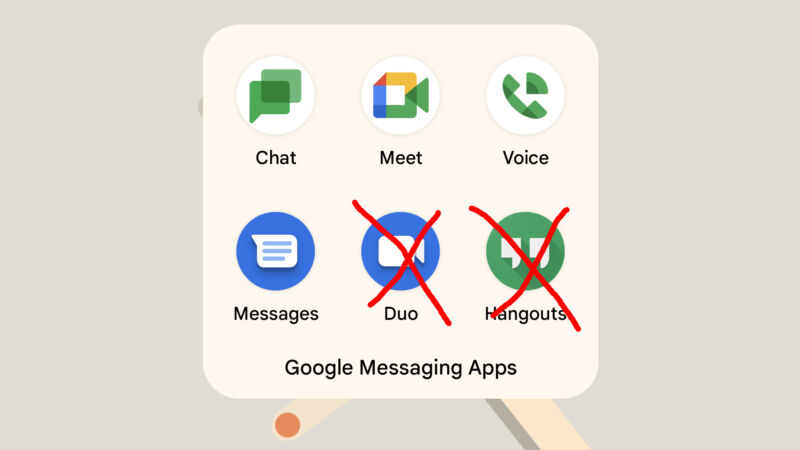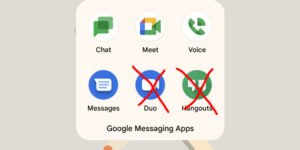
Ron Amadeo
The long-rumored Google Duo and Google Meet merger is actually about to happen. Google officially confirmed the move on Wednesday, explaining in a blog post that the goal is to create a “single video communication service” and that the Duo brand will disappear in favor of Google Meet.
While the Google Duo brand is dying, it sounds like the Duo codebase will live on as the basis of the new Google Meet. Google says that “existing Duo video calling features are here to stay” and that “in the coming weeks we’ll be adding all the Google Meet features to the Duo app so users can easily schedule a video meeting at a time that works for everyone , or continue using video calls to instantly connect with an individual or group. Later this year, we will be renaming the Duo app to Google Meet, our single cross-Google video communication service available to anyone at no cost. “
The move comes after Google merged its communications teams under Google Workspace VP and GM Javier Soltero (the author of Google’s blog post) in 2020. Google has not clarified which products will be merged, but it should means that Google Hangouts, Google Meet, Google Chat, Google Messages, Google Duo and Google Voice will all live under one roof.
Here’s a quick summary of the long history of Google’s communication apps: Google Duo was launched in 2016 as a standalone video chat app with an “accompanying” messaging app called “Google Allo”. Google had just failed in its attempt to buy WhatsApp two years earlier (Facebook instead made the $ 22 billion acquisition), so it turned on its copiers for Google Allo, which was a direct WhatsApp clone. It used SMS-based phone number identification instead of a Google account, and it was limited to one device at a time, following the very non-Googley way WhatsApp works.
Launching two communication apps at the same time seemed strange, but the idea was that Google could pitch the Duo as a companion to WhatsApp as well as Allo. Usually a company is expected to include video chat features in its new messaging app – like Hangouts or Facebook Messenger or (eventually) WhatsApp. Presumably, though, Google knew it could not compete with the WhatsApp juggernaut in chat, so a standalone video app was created with a Whatsapp clone for it. WhatsApp users can stay on WhatsApp for chat, but they can add this Duo app to their arsenal.
